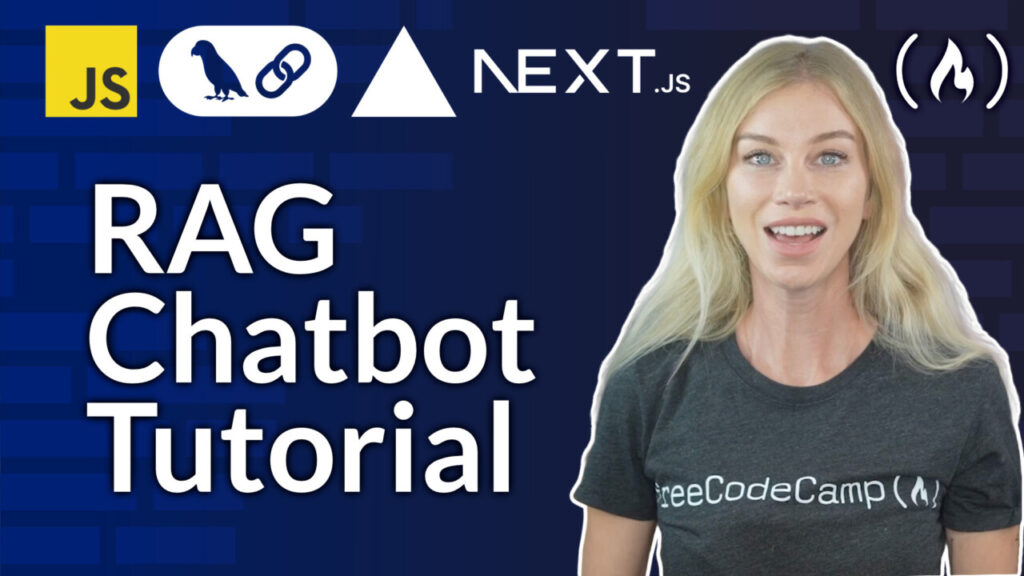Generative AI is rapidly evolving, and with it comes the ability to create powerful applications like chatbots that go beyond static knowledge. Imagine building a chatbot that isn’t limited by outdated training data or predefined responses but can fetch real-time information and provide tailored answers based on your own custom data. This is exactly what you’ll accomplish in this new course.
We just published a new course on the freeCodeCamp.org YouTube channel that will teach you how to build and deploy a RAG chatbot using your own data. This hands-on 90-minute tutorial, led by popular creator Ania Kubow, will teach you how to create a Retrieval-Augmented Generation (RAG) chatbot with JavaScript using tools like LangChain.js, Next.js, and OpenAI. You’ll also deploy it to Vercel and integrate a vector database with DataStax.
By the end of this course, you’ll have built a custom Formula 1 chatbot capable of answering real-time questions about the sport. And you’ll learn how to apply this concept to any dataset, whether it’s FAQs from your website, private business documents, or any other data source you choose.
What You’ll Learn
This course introduces essential AI concepts while equipping you with practical skills to build, train, and deploy a chatbot. Here’s what’s covered:
-
What is RAG?
Learn the fundamentals of Retrieval-Augmented Generation (RAG), an approach that extends the capabilities of large language models (LLMs) by combining them with external data sources to generate more accurate and relevant answers. -
Prerequisites and Setup
-
Learn the tools you’ll need, including a Datastax API key for vector database management.
-
Explore the basics of integrating LangChain.js with your development environment.
-
-
Vector Embeddings and Databases
Understand how vector embeddings convert textual data into numerical formats that AI models can process. Then, learn to manage these embeddings using a Datastax vector database. -
OpenAI Integration
Discover how to enhance chatbot responses by leveraging OpenAI’s powerful language models to add conversational flair. -
Building the F1 RAG Chatbot
Follow step-by-step instructions to scrape real-time Formula 1 data, store it as vector embeddings, and create a chatbot capable of answering the latest questions about F1. -
Deployment on Vercel
Learn to deploy your chatbot with Next.js on Vercel, making it live and accessible to anyone.
Real-Life Use Cases
This course doesn’t just stop at Formula 1. The skills you’ll learn can be applied to countless other scenarios:
-
Business Applications: Create a chatbot to answer customer FAQs or navigate complex company policies.
-
Education: Build tools that provide up-to-date resources for students and educators.
-
Personal Use: Develop chatbots that assist with scheduling, document retrieval, or even journaling.
What is RAG and Why Does It Matter?
Retrieval-Augmented Generation (RAG) combines the text generation capabilities of LLMs with custom or up-to-date data retrieval. This approach avoids the high costs and complexity of retraining large models while addressing limitations like outdated training data. Whether you’re topping up an LLM’s knowledge with real-time internet data or private documents, RAG ensures your chatbot delivers relevant, context-aware answers.
Ready to Build Your First RAG Chatbot?
This course is packed with everything you need to create and deploy a powerful, real-time chatbot. Watch the full tutorial on the freeCodeCamp.org YouTube channel and unlock the potential of generative AI for JavaScript developers (2-hour watch).
Source: freeCodeCamp Programming Tutorials: Python, JavaScript, Git & MoreÂ


